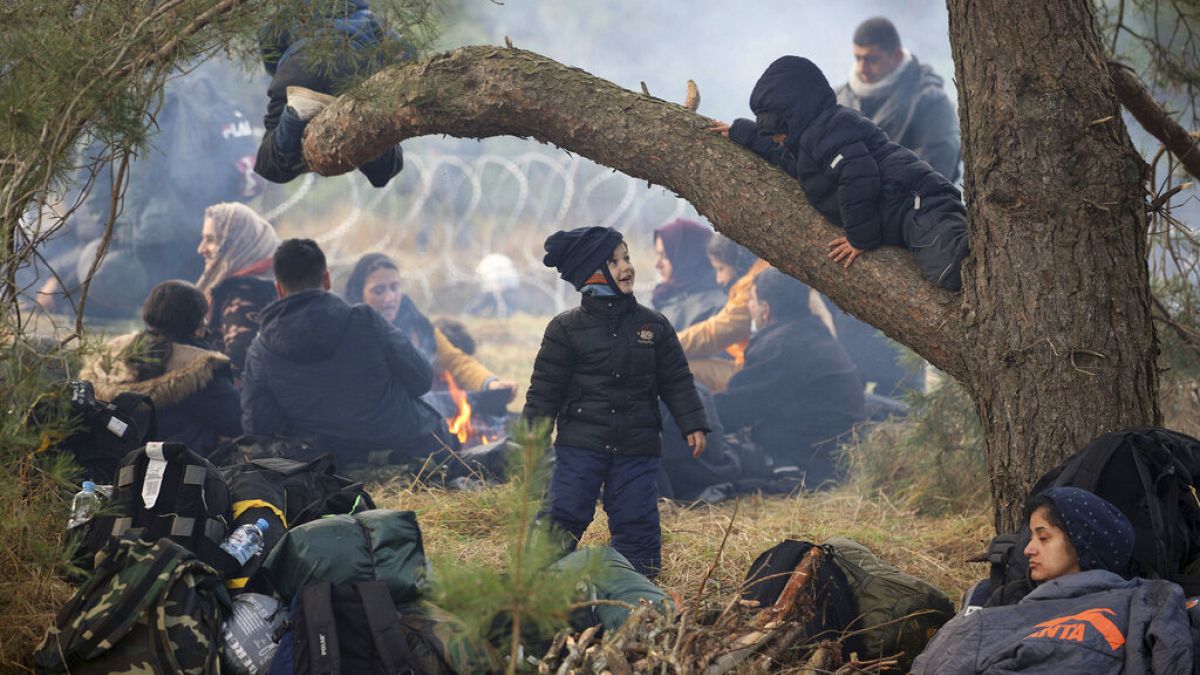Tensions between Minsk and Brussels continued to simmer over migrants attempting to cross into the bloc.
While Europe is grappling with a fast-developing fourth COVID wave, the situation at its eastern border with Belarus has been dominating the agenda in Brussels.
Earlier this week, there were scenes of violence when Polish forces fired tear gas and deployed water cannons against stone-throwing migrants trying to cross the border.
On Thursday, about 100 migrants who were attempting to cross the border from Belarus during the night were detained.
Warsaw accused Belarus of damaging the barbed wire fence so that the migrants could make it across, strengthening the EU claim that Belarus leader Alexander Lukashenko is weaponising the migrants for political gains.
"It is large-scale human trafficking. It is unacceptable, unbearable," Jean-Yves Le Drian, France's foreign minister said. "Lukashenko organises migration routes. Lukashenko weaponises migration routes. Lukashenko manipulates migration routes."
This week also saw some cautious diplomacy to ease the tension.
It was outgoing German chancellor Angela Merkel who had phone conversations with Lukashenko twice within a few days.
Following these talks, Lukashenko seemed to indicate that he's now willing to defuse the crisis.
"We agreed that this escalation was not in anyone’s interests, neither the EU nor Belarus and that we cannot allow this escalation to continue to the point of violent confrontation," Lukashenko said.
Yet, Poland, Estonia and Lithuania were unhappy with Merkel's initiative, feeling left out and patronised.
According to Gabrielius Landsbergis, the Lithuanian foreign minister, Germany only helped elevate an illegitimate dictator with its actions.
"Today we are in a situation where, it seems, there is a separate line on negotiations going on with a dictator, an illegitimate president. I think it is a sad hour for Europe," Landsbergis said.
The chairman of the foreign affairs committee in the Estonian parliament, Marko Mihkelson, even suggested that, by bypassing Poland, Merkel also acted to the satisfaction of Vladimir Putin.
For former NATO secretary-general and Danish Prime Minister Anders Fogh Rasmussen, Russia is key to all of this.
"President Lukashenko is a puppet. President Putin is the mastermind. And I think it's very clear that Putin supports anything that can create disorder in the EU and in NATO," Rasmussen said.
The ex-premier also noted his concerns at the Ukraine-Russia border.
"The build-up of military forces along the Ukrainian border is a clear risk. There's also a clear risk that the migrant crisis in Belarus is used as a smokescreen for military aggression against Ukraine," he said.
"So, all in all, if you take the migrant crisis in Belarus, the military build-up along the Ukrainian border, the increasing gas prices also initiated by Russia, all those elements serve the purpose of creating instability and disorder."


